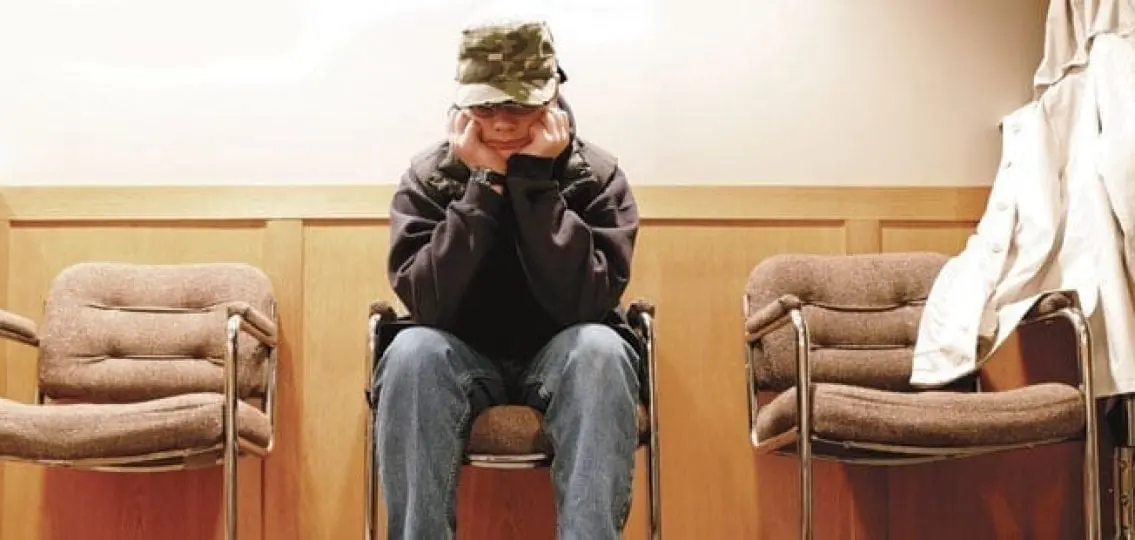When Their Son Had Depression
My first child was born on a warm Baltimore day, March 28, 1989. Labor and delivery were a long and arduous ordeal. Our son Dan was a real “firecracker” from the instant he arrived, screaming and crying with such gusto, that the seasoned delivery nurse declared he was going to be a boy to be reckoned with. My husband and I settled into parenting and made many of the familiar blunders that new parents make, enjoying our demanding but loveable son.

As Dan grew, we saw that he was a high-energy kid who could throw an impressive tantrum and had no time for sleep or food. He was intelligent, comfortable in social situations, and very entertaining. In school, Dan earned decent grades, loved sports, and made friends with relative ease. He still struggled with his temper and could be demanding or emotional, but we attributed these issues to his basic personality makeup.
Somewhere around the seventh grade, we noticed a subtle change in Dan. His interest in sports began to wane, his circle of friends began to decrease, and he was spending more time on the computer. We attributed these changes to adolescence and were not overly concerned.
Seeing The Basic Signs Of Depressions
By the ninth grade, the picture became more worrisome. Dan’s grades were plummeting. He lost all interest in sports and school and was beginning to stay up late, complaining of insomnia. His mood changed. Our once outgoing and energetic son became sullen, irritable, and unapproachable. His friends drifted away and he began hanging out with kids who seemed to be struggling like him.
We suspected that he was using marijuana and alcohol. My husband and I, both mental health professionals, grew more concerned and finally scheduled a meeting with a counselor. Dan was not exactly a willing partner with the counseling thing. We met with several counselors before he found one he liked and trusted. Then he began to make some headway.
Dan’s progress was slow and painful, a journey in which he made some steps forward, only to stumble backwards. During his treatment, he cut himself, which was an extremely frightening ordeal. I’ll never forget the night he showed me his arms. I was shocked at the lines of cuts going down both arms, not deep, but noticeable and unnerving. He hid these marks for months. I’ve always thought of myself as calm, but nothing prepared me for the overwhelming feeling of panic I felt that night. My son and I talked and cried deep into the night.
The next day I called my son’s therapist, who fit him in that day. Dan was not suicidal at this point, but I hid all sharp and dangerous items in our house. My husband and I lived with tremendous worry, but thankfully, we were on the same page and supported each other. Dan did continue to cut himself for several months, but gradually stopped as he learned healthier means of coping, through the support of his counselor, parents, and friends.
A Son Living With Suicidal Thoughts And Depression
At the beginning of 10th grade, Dan lost a friend to suicide. Dan and his friends knew about his friend’s suicidal thoughts, but made a group decision to keep it a secret. Dan was devastated by the suicide and shortly afterwards was hospitalized with his own suicidal thoughts. He was placed on medication and continued counseling. We also changed his environment by transferring him to a wonderful and nurturing boys boarding school (Grand River Academy) for the remainder of 10th grade and then 11th grade. Changing schools was one of the most important things that helped him move forward. He flourished in this environment and came home more mature, self-confident, and happy.
Dan still has occasional struggles with depression and suicidal thoughts, but he is a very insightful and intelligent soul who realizes what he needs to do in order to keep himself on track. For Dan, this means getting enough sleep, eating well, structuring his time, exercising, and staying involved with others. Dan may always be at high risk for depression, but he also knows how to keep himself healthy.

Dan’s tumultuous teenage years were difficult and exhausting for all of us. We often felt alone in our community. My husband and I were fortunate to have wonderful friends and mental health professions who were well-equipped to understand our situation. As I have learned, none of us are immune. Depression and mental illness are a part of life for many of us. No family should have to handle these issues on their own.




